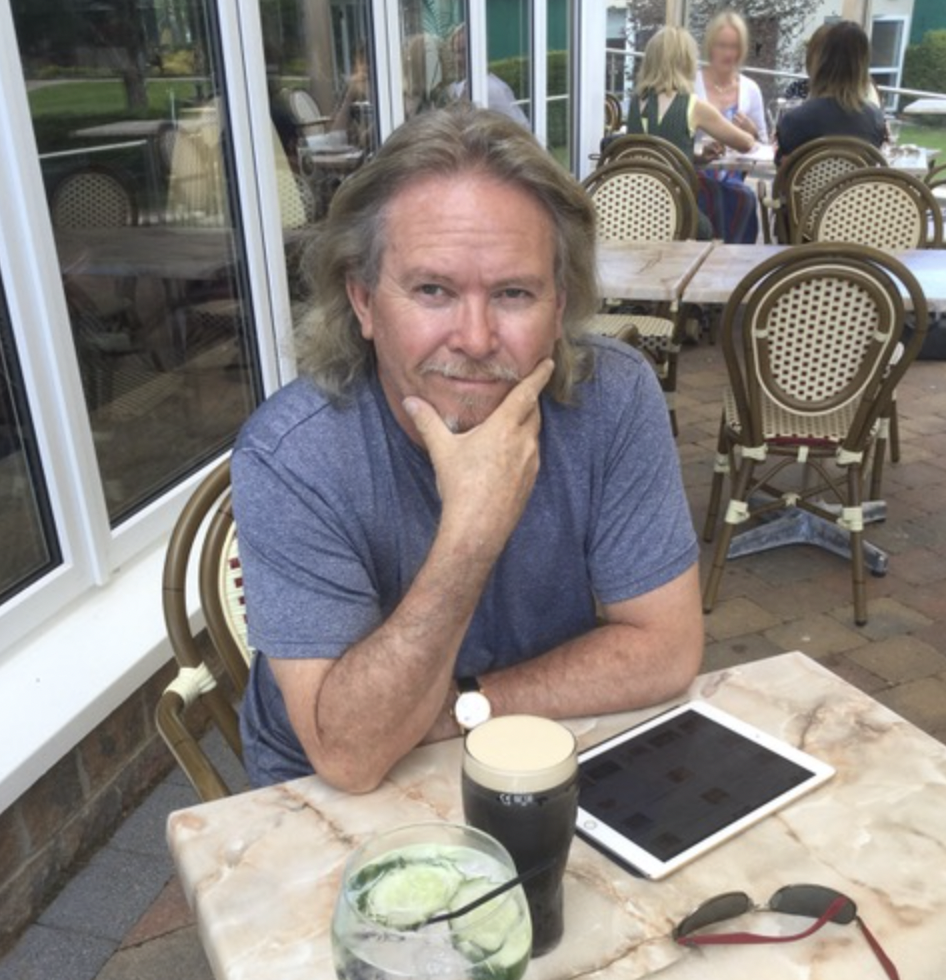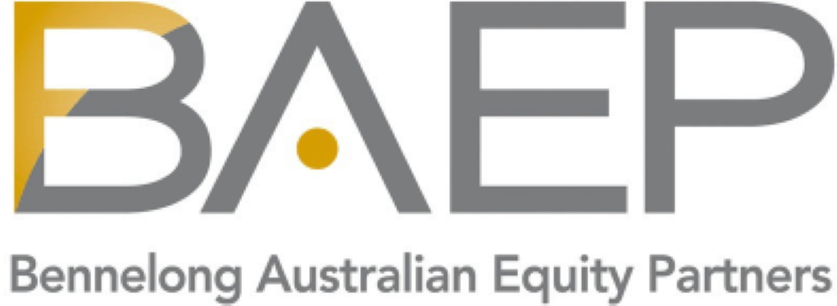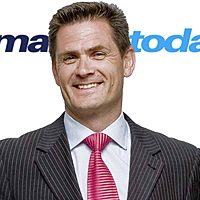Meet Paul: The investor whose journey has been a "string of near misses and extraordinary luck"
Paul is quiet and measured, a Brisbanite with a penchant for investing and a surprisingly elegant way with words.
He was born in Uganda and emigrated to Australia at the age of two, with a Scottish mother and English father, and eventually three brothers. He's been married to his wife for 34 years and has two children who similarly have taken a liking to investing.
At one point, Paul was a commissioned officer in the Australian Army Reserve, serving in the corps for eight years. Later, he would spend ten years as a GP but desperately needed a hobby. He learnt to fly but didn’t like it much as he "wasn’t remotely near what they call a natural pilot."
Fortunately, he discovered computers and taught himself how to program. This eventually led Paul to start his own software company, the proceeds of which he hopes, if invested correctly, can provide for generations to come.
While Tesla is one of the top five international shares he holds (through a managed fund), he reveals he wouldn't own one. Instead, he prefers V8s for their sound and effortless acceleration. In his younger days, it was motorbikes that stole Paul's heart, that is, before a few bad accidents. Astonishingly, he has been run over by a car twice and managed to walk away. If that's not extraordinary luck, I don't know what is.
"A mate and I once ended up at a Finks MC party in the early 80s, where one of them took a liking to me and gave me a stack of old 45s," Paul recalls.
"Sadly, all but two were destroyed on the motorbike ride home when my mate was catapulted into the Brisbane River and I lost a little skin from my right leg. Looking back, I would say I led a charmed early life."
In this Meet the Investor profile, Paul shares how he has narrowly missed several downturns during his investing journey, as well as the managed funds he uses today to help set his SMSF up for the future.
Livewire investor profile
Name: Paul
Age: 61
Employment status: Retired
Years investing: 30
Investment goals: To provide for children and grandchildren and future generations
Products used: Managed funds
Biggest portfolio holding: Magellan Global Fund

How old are you and how long have you been investing?
I’m 61 years old and have been investing on and off since I was in my 30s. I was a poverty-stricken student until I was about 25, and then after that, I was working long hours in hospitals. I had a house and children to pay for, so I didn't have much spare cash to invest.
What is your objective from your investing? What is your appetite for risk? Are you still working?
My objective has always been to become financially independent, ever since reading Noel Whittaker’s “Making Money Made Easy” where he stated that only 8% of people ever actually achieve financial independence. I was surprised at the time but decided I’d rather like to be one of them.
I think I probably have an above-average appetite for risk. I’ve trained myself to welcome pullbacks as a buying opportunity, but I still have the devil on my shoulder whispering that this time you’re really going to suffer!
I’m retired and am looking after our SMSF, a family trust and bucket company, and a few private investments.
I’m now in the process of building a portfolio of assets with an endowment type growth outlook, heavy on alternative assets, for the benefit of my children, grandchildren and possibly future generations. I’m hoping it will be able to help them with education and private health costs, as well as give them a better financial start in life than my wife and I had. Disclaimer: I don’t actually have any grandchildren yet but hope springs eternal.
What products do you use to execute your strategy?
I’ve used everything over the years, but now pretty much stick to managed funds.
I bought a residential investment property in 1987. It cost $55,000 with a $3,000 deposit. I was in a well-paying job, and it wasn’t much more than my after-tax income at the time. It must have been just before the 1987 market crash.
After that, it was marriage, mortgages and children, and working in the UK for a couple of years, so the only spare cash I had to invest was a small amount in my SMSF which I started in 1991. I was investing in individual shares which I held throughout the dot-com boom and crash, but I don’t recall it being particularly memorable for me.
I quit my job in 2000 to work full-time on my own company and was investing via my SMSF up to and through the GFC, but I’d started to sell down a little in late 2007. I’d like to say I predicted the crash in 2008, but I started selling because there were so many pundits predicting a “soft landing”, and “probably just a healthy 5-10% correction for 2008”.
I knew enough by then to know that “soft landings” were rare beasts. So, it struck me that everyone was actually predicting a downturn but hoping for the best. Probably best to take some profits, I thought.
I still copped a fair caning but it could have been much worse.
How would you describe your strategy?
Haphazard up until the GFC, saved by my guardian angel working overtime.
Some of my friends laugh at my optimism, but my life so far has been a long string of near misses and extraordinary luck. There have been a few hard times too, but you have to be an optimist to invest in the share market.
I remember a colleague being wiped out by margin calls in the 1987 crash. He was in tears, and it was an early lesson in avoiding ever getting into that position. When I subsequently quit medicine in 2000 to work full-time on my own software company, I naturally had no spare cash so also largely avoided the tech meltdown in that year. Nevertheless, they were both instructive in what not to do.
By 2010 my company was doing very well, so I thought it was time I got an adviser. I recognised that I had neither the temperament, time nor inclination to continue individual stock-picking myself.
I approached my bank’s financial advisory service and borrowed a few hundred thousand against my home equity and was invested in a reasonably diversified portfolio of managed funds which did pretty well over the next seven years.
The problem was that their advisers kept disappearing, stopped answering emails, and when I rang to find out why was told that they were on “extended sick leave”. That happened like clockwork every two years until I got to their fourth new advisor and decided to pull the plug. I briefly thought it might be me causing their mental problems.
That coincided with the sale of my company, and I was suddenly quite wealthy and debt-free for the first time in my life.
Initially, I just managed it myself in a variety of funds and ETFs, but I knew my limitations and I missed having someone to bounce ideas off. I was also worried that my wife would be a charlatan-magnet if I was to get hit by a bus. (Note: My great grandfather was run over and killed by a London bus.)
I eventually landed at Crestone because I liked that they were independent, and I already knew some of the people there. I finally have a sane adviser whom I trust.
Yes, it costs me a lot more than doing it myself, but there are some advantages:
- I don’t have to worry about leaving my family with a portfolio they may not understand. They’ll have someone to explain it all to them.
- They have several discretionary portfolio management (DPM) models which allow me to invest in some of the best funds at a lower fee e.g. Magellan at 0.95% flat, instead of the usual 1.33% plus performance fees.
- I like the disciplined framework of having recommended strategic allocations across asset classes. It helps me with investment decisions and occasional rebalancing between asset classes.
- They provide access to the best alternative asset and boutique fund managers, many of whom would be unavailable to me on my own.
- Collation of tax information to make tax time easier.
What are your top five holdings in percentage terms? Why do you hold each of these positions?
Magellan Global Fund (DPM) – 8.3%
I’ve held this fund in one form or another since 2010, and it’s been an excellent investment, notwithstanding their recent underperformance against the benchmark. I like it because it holds a good mix of growth and defensive stocks, so does well throughout the cycle. This is a long-term hold.

Partners Group Global Value Fund – 5.2%
This is a private equity fund that I’ve held for the past three years. It just grows steadily month after month and is one of my best performers over that time. I’ll keep adding to this.
Bennelong Concentrated Australian Equities – 4.9%
I’ve owned this for many years. It’s regularly in the top three performers for Australian funds although it can be a little volatile. Another long-term hold.

Hamilton Lane Global Private Assets – 4.4%
This is similar to the Partners Group Global Value Fund, and grows like clockwork, but doesn’t pay a dividend.
Firetrail Australian High Conviction Fund (DPM) – 4.2%
I’ve owned this for three years or so. I quite like it because it’s been a steady performer, without being too volatile.

Hamilton Lane and Partners Group stand out to me. And they both have done really well. They just tick up by around 1% every month. The best performing fund, which I only have a small amount in is the Cota Offshore Growth Fund. It pays no dividends, but it is up around 130% over the last three years. It's a bit volatile, as it invests in business-to-business tech.
The other one I really like, which isn't in my top five, is the Capital Group New Perspective Fund. They invest in what is new and up-and-coming, so tech, digitisation, decarbonisation, robotics and genetics.
Could you tell me about your worst investment?
I don’t want to name names, but since we’re talking about managed funds the worst investments by far have been the so-called value or contrarian funds. Particularly when they keep doubling down on falling knives, like AMP (ASX: AMP).
That said, the investment which had the largest impression on me was the house I bought in ’87. Although I eventually sold it for a profit after holding it through the high-interest rates of that time, the experience put me off from owning a residential investment property ever again. Hamish Douglass is never going to call me late at night wanting a new dishwasher!
How do you go about dealing with losing positions?
It depends on the reason for any under-performance. I would generally give a fund manager at least two years’ grace unless:
- They are doing something which I consider demonstrably stupid e.g. AMP.
- They have changed their professed investing style e.g. a Long-Short fund being 99% long whilst still charging hedge fund fees.
I generally sell out any losing positions when the market is feeling a little frothy. I sold out one of the above losers on Friday the 20th Feb 2020. The COVID crash occurred on the following Monday. Once again, I’d like to claim to own a crystal ball, but the truth is I was just angry and disappointed, so I just lost a bundle instead of a truckload.
How does Livewire help with your investing process and what tips can you share with other investors about using Livewire?
I enjoy reading Livewire because I believe you can learn by osmosis. I’ve been reading the financial pages for most of my life for the same reason, even though I didn’t understand most of it initially.
There are so many different views and there’s more than one way to skin a cat. It’s good to have a very broad overview of what’s going on in the investment world, and Livewire helps with that.
Do you have a favourite contributor you recommend other investors follow?
Scott Haslem because he’s the Crestone CIO, and Chris Joye. They both seem to get it right more often than not.
Marcus Padley, because even though I disagree with his market timing theories, he makes me stop and think about things we take for granted.
I’d pick Marcus as the person I’d most like to sit next to at a dinner party if Katherine Heigl wasn’t invited.



What can Livewire do better or what do you dislike about Livewire?
I hate these questions.
It’s like how Australia Post delivers a parcel and then sends an email asking, “How did we do?”
I email back, “Well you delivered the parcel to the right address. You want a bloody medal too?”
I like Livewire. I read it every day. There’s nothing I don’t like. Keep doing it.
Is there a lesson you’ve learned as an investor that could help others?
For now, it’s largely about asset allocation and occasional rebalancing. It’s a great framework which means you tend to sell high and buy low. For the same reason, I’m not a fan of ETFs which internally do the exact opposite i.e. buy high and sell low.
Don’t buy a residential investment property. It’s too much trouble.
All the investment advice books assume a steady progression through life where you must create a budget and save x% of your income, which will then steadily grow and compound to an impressively large amount at retirement. Aside from super, it’s utter nonsense because life is lumpy, so budgets are useless. Just try really hard to spend less than you earn.
Pick your spouse carefully. It’s probably the most important thing of all. You’ve got to be on the same wavelength.
I believe that money only buys you options in life. It’s how you exercise those options that finally determines whether or not money can indeed buy happiness.
Is there a topic that you want fund managers to write about?
I’d really like to know how they manage a market correction. If they keep a low cash allocation, can they rely on enough opportunistic buyers putting money into their fund, or do they have to sell their stocks at the worst possible time to pay for redemptions?
Is there an ideal cash allocation to avoid unwanted selling for the average correction?
Can you share a personal passion or ambition you have for your future?
Although there have been some very difficult times, overall I have to say that I’ve been extremely fortunate, both personally and financially.
My wife of 34 years and I have been successful beyond our wildest dreams. I play a lot of golf, have lunch with old friends, and we both look forward to grandchildren. I have no burning ambitions left.
My children are both terrific savers and investors. They went out and were working part-time jobs since they were 15. My daughter is just about to get married next month and has been able to put down a deposit on a house from her investments, and my son did the same thing a couple of years ago.
I am content.
Enjoying Livewire's Meet the Investor series?
If you enjoyed hearing about Paul's investing journey, please give this wire a 'like', and if you know someone who might enjoy the article, why not send them the link.
You can access more of our Meet the Investor interviews by clicking here.
We are looking forward to hearing from more of our readers in 2022. If you are interested in being profiled in our Meet the Investor series, contact us using the email address below:
content@livewiremarkets.com
2 topics
3 funds mentioned
3 contributors mentioned


